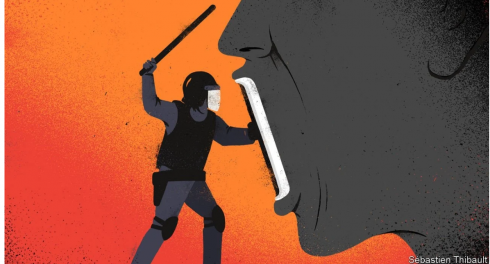What is the problem?
Learning has become part of the standard development vocabulary, and its importance is increasingly recognized by civil society organizations working to promote transparency, accountability and greater citizen participation. A growing number of organizations have made an explicit commitment to learning and are testing how it can help them be more effective in their work. Yet these groups are often working in isolation, and responding to demands that may not prioritize learning, including managing discrete projects. Even if adept at conducting internal monitoring and evaluation for accountability purposes, they have no dedicated space to link up their learning agendas to expand their collective knowledge and expertise, learn from each other, and inspire other organizations to do the same. While many connect with researchers in the global transparency, accountability and participation (TAP) field, these relationships tend to favor an academic approach to evidence geared towards filling academic knowledge “gaps.” The global governance advocacy and research agendas could be better informed by practitioner lessons and evidence.
What is our response?
We are forming a TAP learning collaborative, with three reinforcing objectives. The first and foremost is to test the hypothesis that organizations that are smart about learning are more effective in reaching their stated TAP goals (and clarify constraining and facilitating factors to being an effective learning organization). The second is to accelerate learning among TAP organizations with a focus on those in the global south. We want to help spread knowledge and ideas on the conceptualization, execution, assessment and refinement of TAP initiatives. The third is to increase engagement between practitioners and researchers as well as funders and better integrate practitioner evidence and priority questions into the global TAP research and advocacy agendas.
How will it work?
The primary tool of the collaborative is dynamic, networked learning, centered around an initially small number of learning hubs, i.e. a group of thoughtful practitioner organizations that are active networkers and make use of reflective learning approaches in their own work. The collaborative will also be linked to and supported by learning entities, including selected academic centers which value and promote practitioner-based evidence and learning in the global TAP field.
The collaborative will not create new projects, its purpose is to facilitate engagement and learning relationships and practices that correspond to the current objectives and needs of the members of the collaborative and their networks. Some of the concrete ways in which the collaborative members will interface are peer mentoring, sustained capacity-building exchanges, and action-research design. An explicit goal is to build relationships among members and other TAP focused organizations and it is best done through doing tangible work together, not just talking and sharing information. One of the hubs will also house a facilitator to assist in the coordination and development of collaborative knowledge. The partnership with academic centers will respond to collaborative members’ needs, but will also leverage these centers as entry points to the global TAP field through, for example, mapping the hubs’ theories of change and strategies onto governance research, broadening access to agenda-setting, and synthesizing lessons from practitioner efforts.
Where will the collaborative start?
The collaborative will begin small. We want to pilot the approach, learn from implementation, and assess the value of the initiative before we adapt and evolve. Founding groups are Dejusticia, Centro de Estudios para la Equidad y Gobernanza en los Sistemas de Salud (CEGSS), Twaweza East Africa, Global Integrity, Accountability Research Center at American University (ARC), the MIT Governance Lab (MIT GOV/LAB), and the Transparency and Accountability Initiative (TAI).


